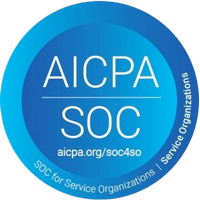I don’t think it’s boasting to say that those of us in assisted living have learned to balance an incredible number of demands. To staff an assisted living community, you have to excel in multiple areas at once. An appealing culture, competitive benefits, speed-to-hire—they all contribute to the impression you make on potential candidates, and therefore to your assisted living hiring.
But there’s one factor that’s so integral to assisted living, it often hides in plain sight: quality of care. Your quality of care can be your secret weapon for assisted living hiring. But it’s not enough to just give residents a strong care experience. You also need to figure out how to leverage it in your recruiting campaigns.
Let’s dig a little deeper.
Quality of Life is Your Mission in Action
Even when recruiting is hard, we in healthcare do have a major benefit: our workers are often truly passionate about what they do. Now more than ever before, Americans are looking for work that feels and is meaningful to them.
In assisted living, your mission is everything. The workers who are most motivated to join your community will also be the people who are most inspired by what you do for your residents. But there’s a problem here. How do you differentiate yourself from other assisted living communities to attract those highly driven workers?
The solution might not be easy, but it is simple. You differentiate yourself with demonstrably excellent quality of life. If everyone around you makes the same claims, you can be the one to prove them.
Resident-Centered Care Helps Employee Culture, Too
Assisted living operators often walk on a tense tightrope. You want to provide holistic, patient-centered care, allowing every resident ample time and attention. You also need to be efficient, strategic, and to maximize what your workers can do in each shift (particularly if you’re struggling with short-staffing). What you prioritize—efficiency or patient-centered care—isn’t only a challenge for you. It’s also something job seekers try to assess while deciding whether to apply to one of your vacancies.
We all hope to balance these priorities. But job seekers are looking for workplaces where they can do their best work—in other words, resident-centered communities. With better relationships between residents and staff, these communities are more fulfilling and less stressful for everyone involved.
Helping Assisted Living Employees Do Their Best Work
By indicating that you prioritize quality of care, you’re giving candidates a clue that you understand the importance of allowing them to do their best work.
In 2015, researchers with BMC Health Services conducted a series of interviews with healthcare workers, trying to understand how different clinicians understood quality of care. The results were striking. Overwhelmingly, employees said they felt tension between the need to be efficient and the desire to provide excellent care. Respondents tended to agree that they would be happier in an environment where they could provide a better care experience.
“However much you’re saying prioritize and let things go, people are just going to feel disillusioned and dissatisfied because that’s not what they’ve come into this work to do,” said one respondent. “They’ll keep on doing it to a point, until they just get burnt out.”
How to Connect Quality of Care to Assisted Living Hiring
To a certain extent, quality of care is its own recruitment marketing strategy. People want to work where residents are happy. When you provide an excellent resident experience, your community’s standing with families, workers, and talent networks will improve. But you can’t take it for granted that your reputation will precede you.
To maximize your assisted living hiring, you’ll need to find strategies to manage your business reputation. Here are some tips to help you maximize your reputation during recruitment.
Quantify Your Results
Measuring quality of care is complicated. It’s both subjective and objective, and different individuals will have different methods of assessing it. Despite this, you’ll need to find concrete ways to measure your quality of care if you want to advertise it in your recruiting.
One method of measuring quality of care is with the Healthy Days Measure, created by the CDC. This method involves asking patients to report how they feel about their health generally, and then to think about how many days in recent memory they’ve felt unwell.
Another way you might measure quality of care is with the EQ-5D-5L questionnaire. Like the Healthy Days Measure, this questionnaire asks patients to self-report on their health. Questions cover residents’ ability to care for themselves, participate in usual activities, and on their mobility, comfort levels, and mental health.
Of course, you need to protect your residents’ privacy—it would never be appropriate to directly cite responses to these assessments in a recruiting campaign. What you can do is speak in broad strokes about your residents’ satisfaction, and describe the steps you take to understand and improve quality of care. This in itself will indicate your commitment to building a healthy and supportive community.
Use Resident Voices in Recruiting
No one understands the quality of life in your community better than your residents. Look for residents and families who may be willing to provide a quote about their experience. These testimonials will be extremely powerful to candidates looking for a positive and cohesive work environment.
Another option is to give candidates the chance to shadow a current employee as part of your screening process. Your candidates will be able to see your care standards in practice and meet the residents who might become part of their lives.
Connect Quality of Care to Candidate Growth
The quality of care you can provide is directly informed by your employees’ growth. The more you can help your employees feel engaged and prepared, the better results you’ll see in your community.
While you’re fine-tuning your assisted living hiring strategy, hold the connection front and center. Let candidates know that you prioritize your talent with internal training, continuing education, and professional development. Job seekers like to know they’ll have the chance to grow—and by giving them this chance, you’ll be more likely to attract highly motivated workers.
Quality Caregiving Attracts Quality Caregivers
Quality of care is a cycle. With higher care standards, you’ll develop a better reputation, which will improve your hiring, which will then lead to better care.
We’ve discussed some strategies to help you appeal to job seekers who want to join a healthy, resident-focused community. But if you need more help sourcing these applicants, Apploi is here to offer assistance.
Apploi is on a mission to help healthcare recruit, hire, and manage talent more successfully. We help employers control their brand and engage applicants through unlimited communication, branded career pages, instant job post distribution, and a painless application experience.
Interested in learning more about how you can recruit, hire, and onboard healthcare staff quickly? Contact us today for a free demo of our end-to-end talent management solution.





